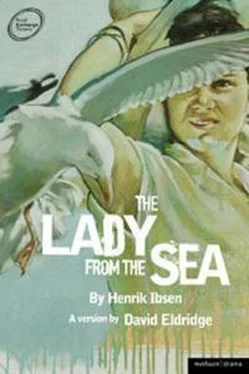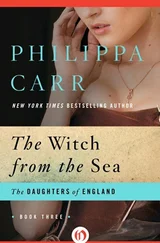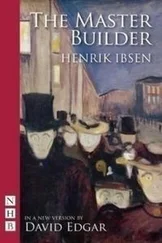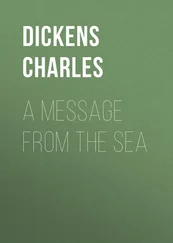Ellida. I know that. Oh! I know that so well.
Wangel. But you are mistaken all the same. To you it is almost as if the children's mother were still living—as if she were still here invisible amongst us. You think my heart is equally divided between you and her. It is this thought that shocks you. You see something immoral in our relation, and that is why you no longer can or will live with me as my wife.
Ellida (rising). Have you seen all that, Wangel—seen into all this?
Wangel. Yes; today I have at last seen to the very heart of it—to its utmost depths.
Ellida. To its very heart, you say? Oh, do not think that!
Wangel (rising). I see very well that there is more than this, dear Ellida.
Ellida (anxiously). You know there is more?
Wangel. Yes. You cannot bear your surroundings here. The mountains crush you, and weigh upon your heart. Nothing is open enough for you here. The heavens above you are not spacious enough. The air is not strong and bracing enough.
Ellida. You are right. Night and day, winter and summer, it weighs upon me—this irresistible home–sickness for the sea.
Wangel. I know it well, dear Ellida (laying his hands upon her head). And that is why the poor sick child shall go home to her own again.
Ellida. What do you mean?
Wangel. Something quite simple. We are going away.
Ellida. Going away?
Wangel. Yes. Somewhere by the open sea—a place where you can find a true home, after your own heart.
Ellida. Oh, dear, do not think of that! That is quite impossible. You can live happily nowhere on earth but here!
Wangel. That must be as it may. And, besides, do you think I can live happily here—without you?
Ellida. But I am here. And I will stay here. You have me.
Wangel. Have I, Ellida?
Ellida. Oh! don't speak of all this. Why, here you have all that you love and strive for. All your life's work lies here.
Wangel. That must be as it may, I tell you. We are going away from here—are going somewhere—out there. That is quite settled now, dear Ellida.
Ellida. What do you think we should gain by that?
Wangel. You would regain your health and peace of mind.
Ellida. Hardly. And then you, yourself! Think of yourself, too! What of you?
Wangel. I would win you back again, my dearest.
Ellida. But you cannot do that! No, no, you can't do that, Wangel! That is the terrible part of it—heart–breaking to think of.
Wangel. That remains to be proved. If you are harbouring such thoughts, truly there is no other salvation for you than to go hence. And the sooner the better. Now this is irrevocably settled, do you hear?
Ellida. No! Then in heaven's name I had better tell you everything straight out. Everything just as it is.
Wangel. Yes, yes! Do.
Ellida. For you shall not ruin your happiness for my sake, especially as it can't help us in any way.
Wangel. I have your word now that you will tell me everything just as it is.
Ellida. I'll tell you everything as well as I can, and as far as I understand it. Come here and sit by me. (They sit down on the stones.)
Wangel. Well, Ellida, so—
Ellida. That day when you came out there and asked me if I would be yours, you spoke so frankly and honestly to me about your first marriage. It had been so happy, you said.
Wangel. And so it was.
Ellida. Yes, yes! I am sure of that, dear! It is not for that I am referring to it now. I only want to remind you that I, on my side, was frank with you. I told you quite openly that once in my life I had cared for another. That there had been a—a kind of engagement between us.
Wangel. A kind of—
Ellida. Yes, something of the sort. Well, it only lasted such a very short time. He went away; and after that I put an end to it. I told you all that.
Wangel. Why rake up all this now? It really didn't concern me; nor have I once asked you who he was!
Ellida. No, you have not. You are always so thoughtful for me.
Wangel (smiling). Oh, in this case I could guess the name well enough for myself.
Ellida. The name?
Wangel. Out in Skjoldviken and thereabouts there weren't many to choose from; or, rather, there was only a single one.
Ellida. You believe it was Arnholm!
Wangel. Well, wasn't it?
Ellida. No!
Wangel. Not he? Then I don't in the least understand.
Ellida. Can you remember that late in the autumn a large American ship once put into Skjoldviken for repairs?
Wangel. Yes, I remember it very well. It was on board that ship that the captain was found one morning in his cabin—murdered. I myself went out to make the post–mortem.
Ellida. Yes, it was you.
Wangel. It was the second mate who had murdered him.
Ellida. No one can say that. For it was never proved.
Wangel. There was enough against him anyhow, or why should he have drowned himself as he did?
Ellida. He did not drown himself. He sailed in a ship to the north.
Wangel (startled). How do you know?
Ellida (with an effort). Well, Wangel—it was this second mate to whom I was—betrothed.
Wangel (springing up). What! Is it possible!
Ellida. Yes, it is so. It was to him!
Wangel. But how on earth, Ellida! How did you come to betroth yourself to such a man? To an absolute stranger! What is his name?
Ellida. At that time he called himself Friman. Later, in his letters he signed himself Alfred Johnston.
Wangel. And where did he come from?
Ellida. From Finmark, he said. For the rest, he was born in Finland, had come to Norway there as a child with his father, I think.
Wangel. A Finlander, then?
Ellida. Yes, so he called himself.
Wangel. What else do you know about him?
Ellida. Only that he went to sea very young. And that he had been on long voyages.
Wangel. Nothing more?
Ellida. No. We never spoke of such things.
Wangel. Of what did you speak, then?
Ellida. We spoke mostly about the sea.
Wangel. Ah! About the sea—
Ellida. About storms and calm. Of dark nights at sea. And of the sea in the glittering sunshiny days we spoke also. But we spoke most of the whales, and the dolphins, and the seals who lie out there on the rocks in the midday sun. And then we spoke of the gulls, and the eagles, and all the other sea birds. I think—isn't it wonderful?—when we talked of such things it seemed to me as if both the sea beasts and sea birds were one with him.
Wangel. And with you?
Ellida. Yes; I almost thought I belonged to them all, too.
Wangel. Well, well! And so it was that you betrothed yourself to him?
Ellida. Yes. He said I must.
Wangel. You must? Had you no will of your own, then?
Ellida. Not when he was near. Ah! afterwards I thought it all so inexplicable.
Wangel. Were you often together?
Ellida. No; not very often. One day he came out to our place, and looked over the lighthouse. After that I got to know him, and we met now and again. But then that happened about the captain, and so he had to go away.
Wangel. Yes, yes. Tell me more about that.
Ellida. It was just daybreak when I had a note from him. He said in it I was to go out to him at the Bratthammer. You know the headland there between the lighthouse and Skjoldviken?
Wangel. I know, I know!
Ellida. I was to go out there at once, he wrote, because he wanted to speak to me.
Wangel. And you went?
Ellida. Yes. I could not do otherwise. Well, then he told me he had stabbed the captain in the night.
Wangel. He said that himself! Actually said so!
Ellida. Yes. But he had only acted rightly and justly, he said.
Wangel. Rightly and justly! Why did he stab him then?
Ellida. He wouldn't speak out about that. He said it was not fit for me to hear.
Wangel. And you believed his naked, bare word?
Читать дальше












